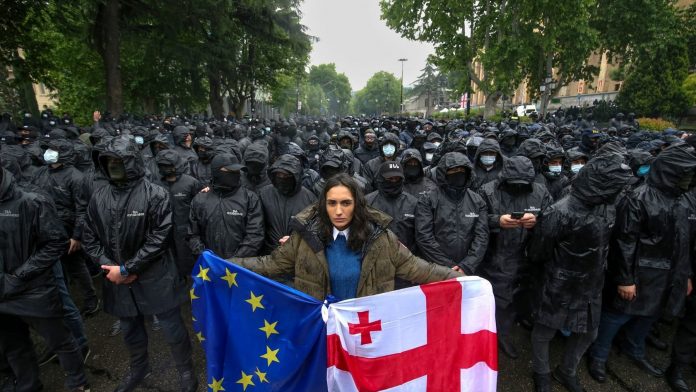The leadership of the former Soviet republic of Georgia is tightening control over civil society. Organizations that do not register face penalties.
In Georgia, the law limiting foreign influence on non-governmental organizations is being enacted despite massive protests. Instead of President Salome Zurabishvili, who refused, Parliament Speaker Shalva Papuashvili said he signed the law. It is to be officially published in the official gazette of the former Soviet republic in the South Caucasus on Tuesday. Prime Minister Irakli Kobachidze told the cabinet that a lot of false information had been spread about the law in recent months. Now it is in force and must be applied pragmatically and with a cool head.
On Sunday, there was a rally against the law in Tbilisi. At an evening concert, money was collected to support arrested demonstrators. The law imposes stricter accountability on independent media and other civil society organizations if they receive more than 20 percent of their money from abroad. The ruling Georgian Dream party justifies the law with greater transparency; it strengthens Georgia's sovereignty.
Mass protests over the past two months have failed to change the leadership's mind. Interventions by important donors such as the EU and the USA have also achieved nothing. Opponents of the law fear that, as in Russia, critical organizations will be hindered and silenced. They accuse the ruling party of pursuing an increasingly authoritarian course ahead of the parliamentary elections in October and see the country's future accession to the EU as being at risk.
Two months after the law comes into force, the online registration of non-governmental organizations is to begin. Those who fail to comply with the accountability requirements will initially face fines. Organizations that do not register will have their assets confiscated, said the mayor of Tbilisi, Kakha Kaladze. They will then be closed.
Many organizations have announced that they will not comply with the law and will not register. They have announced that they will file lawsuits with the Georgian Constitutional Court and the European Court of Human Rights.


